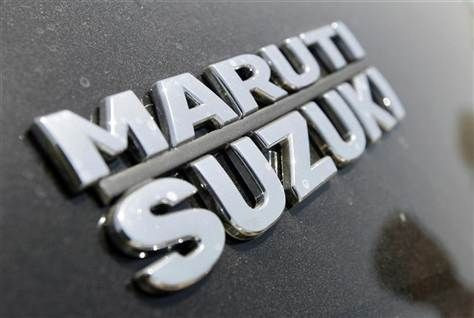Suzuki To Pull Out Of US Car Market Due To Strong Yen

Japan's Suzuki Motor Corp. (TYO: 7269) said it will stop selling cars in the U.S., ending a 27-year effort to gain traction in the world’s No. 2 auto market after China, as a strong yen is making it unprofitable to export products from Japan.
The company's U.S. arm, American Suzuki Motor Corp., has filed for Chapter 11 bankruptcy protection in California.
In documents filed with the U.S. Bankruptcy Court in the Central District of California, American Suzuki estimated that its debts and liabilities range from at least $100 million to as much as $500 million, The Associated Press reports. It also said it has between 1,000 and 5,000 creditors.
American Suzuki, the Brea, Calif.-based sole distributor of Suzuki vehicles in the continental U.S., said it will continue after-sales service for vehicles it has already sold in the U.S.
Suzuki, which specializes in small cars, said its decision has been forced on it by the strong yen, low sales, a limited number of models, high production costs, and stringent state and federal regulations. The company will now focus on motorcycles, all-terrain vehicles and marine equipment in the U.S.
"While the decision to discontinue new automobile sales in the U.S. was difficult to make, today's actions were inevitable under these circumstances," the company said.
Suzuki entered the U.S. market in 1985 and used to build vehicles in Ingersoll, Ontario, via a joint venture with General Motors Company (NYSE: GM). The venture, which was established in 1986 and started production in 1989, saw its production peak of Suzuki vehicles in 2007 with 31,000 vehicles, but by 2008 this had dropped to 12,000.
Following the collapse of GM in 2009, Suzuki sold its entire stake in the Canadian joint venture to GM. Suzuki has since exported vehicles from Japan, but near-record highs of the yen against the dollar in recent years have cut into the profitability of its U.S. business.
Suzuki’s sales in the U.S. during the first 10 months of this year fell 5 percent to 21,188 vehicles, giving it a market share of 0.2 percent, according to researcher Autodata Corp. By comparison, Toyota Motor Corp.’s (TYO: 7203) share was 14.4 percent.
The ongoing euro crisis has sent risk-averse investors flocking to the relative safety of the yen, driving it beyond levels exporters can cope with and threatening Japan’s economic recovery from last year's earthquake.
“I told them that the strong yen persists in spite of the fact that Japanese economic fundamentals are not solid and that it poses a major downside risk to the Japanese economy," Japanese Finance Minister Koriki Jojima told reporters late on Sunday at the meeting of G-20 finance chiefs in Mexico City, Reuters reports.
Japanese officials said they have not ruled out intervention in the currency market if Japan does not get support from other countries.
Meanwhile, fellow Japanese carmaker Daihatsu Motor Co. Ltd. (TYO: 7262), a subsidiary of Toyota, is proceeding with plans to pull out of the European market in January 2013, also citing the appreciation of the yen.
The strength of the currency has made exporting vehicles from Japan to Europe nearly impossible, said the Osaka-based carmaker, adding that it would discontinue auto sales in Europe at the end of January 2013 but would continue to supply parts and after-sales services.
Suzuki shares closed up 0.7 percent at ¥1,847 on the Tokyo stock market on Tuesday. The carmaker will report earnings for the July-September period Friday.
© Copyright IBTimes 2024. All rights reserved.





















